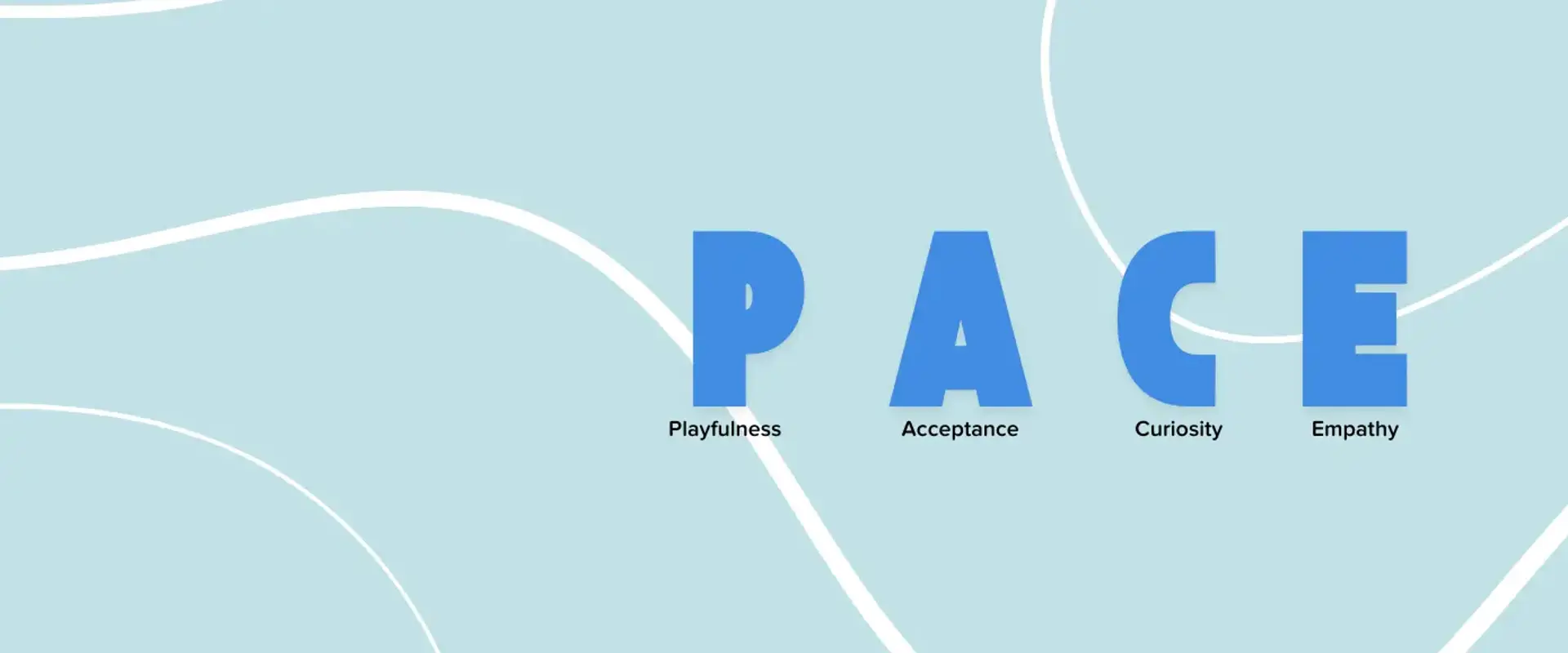PACE and Foundations for Attachment
How we support complex trauma needs in everyday lives.

PACE: Playfulness, Acceptance, Curiosity, Empathy
How does PACE help?
For a carer, PACE is a way of communicating to their child that they can support their complex trauma needs in their everyday lives to help coregulate their emotions. This helps a child begin to reflect on behaviours and how these can be linked to the past.
It was designed for children with relational trauma and is informed by attachment theory and neuroscience.
PACE is a brain-based method of communicating that is less triggering than typical parenting strategies, which can often be a barrier to emotional regulation and learning new ways of coping.
Who delivers this?
Our DDPI (Dyadic Developmental Psychotherapy International) approved PACE Trainer delivers PACE training as well as Foundations for Attachment (A Dyadic Developmental Psychotherapy (DDP) informed therapeutic parenting groupwork program) across our fostering support.

PACE Trainer, Therapeutic Social Worker, David King
Everyday Support
PACE as a parenting attitude in the day-to-day care of the child is designed to offer attachment security, and through carers using this a child learns to trust their carer’s intentions and motives and aids reciprocal conversations to take place. PACE is about getting to know what it’s like for a child to be them, and learning how they experience the world and relationships.
PACE training and support is part of our Integrated Therapeutic Supports, available to all young people and Carers. Other areas of this service include, Our Theraplay® Based Practice and Our Educational Support Services.
More on PACE from DDP Network: What is meant by PACE? - DDP Network
Hear David Speak on PACE during Care Visions Family Talk
In this talk David King, along with Edwina Grant - Independent Chartered Psychologist, explain how PACE can transform the way we connect with and support children.
About David King
David has an extensive career in working with children and families. His Social Care experience extends from work in Residential Child Care to supporting Foster Carers, Children and Young People. His role of Therapeutic Social Worker with Care Visions has given him a platform to become a Dyadic Developmental Psychotherapy (DDP) Practitioner, using his role as a PACE trainer to help foster carers understand their autonomic nervous system and how this can help shape and guide communication and actions, and that of their children. David is a father of two, living and working in Central Scotland. He has an interest in sports and previously fronted a semi-successful indie-rock band.
In Application, Foundations for Attachment Training
Foundations for Attachment helps carers to nurture attachments with their child after trauma, loss or separation.
We offer a six-session therapeutic parenting program, suitable for training care givers including foster carers, residential childcare workers, adoptive parents, kinship carers or parents of traumatised children.
This It is informed by attachment theory and DDP. The group programme offers carers a bridge between learning and principles of attachment and how such attachment is experienced. In six sessions, knowledge about trauma, attachment and neurobiology is made easy to understand through practice- based exercises and handouts, along with the opportunity for reflection on practice, and experience.
Our DDPI approved trainer, David King, is able to deliver the Foundations for Attachment Training to any carer that would benefit from this resource and we offer child carer, and carer only DDP Therapy Sessions.